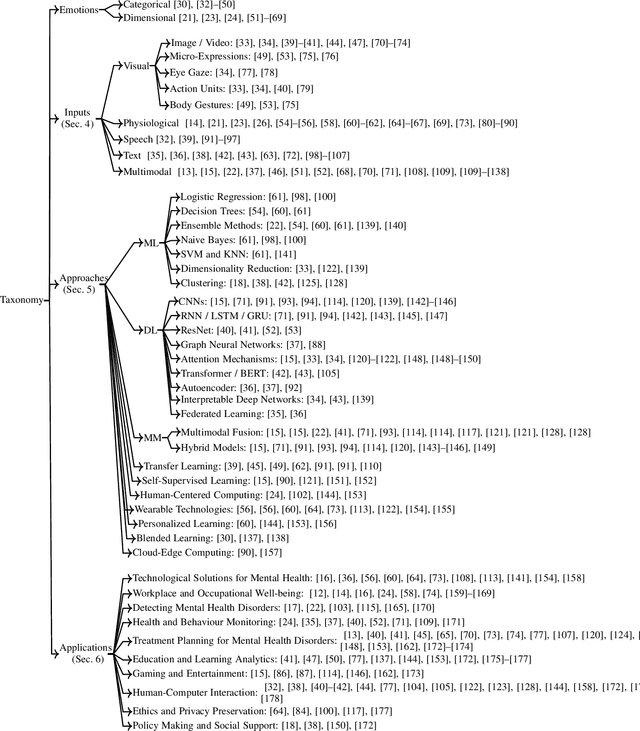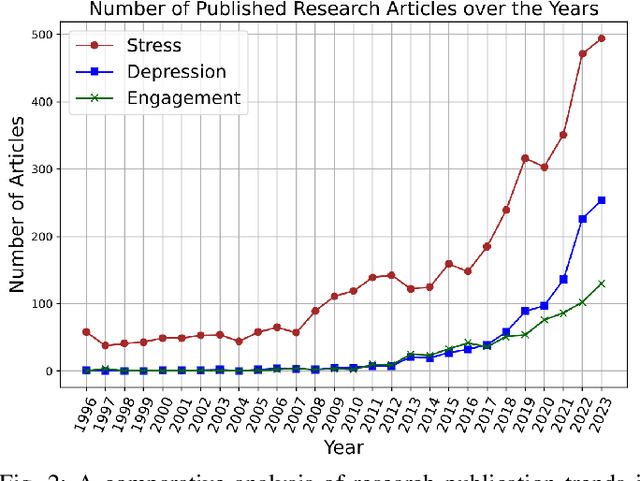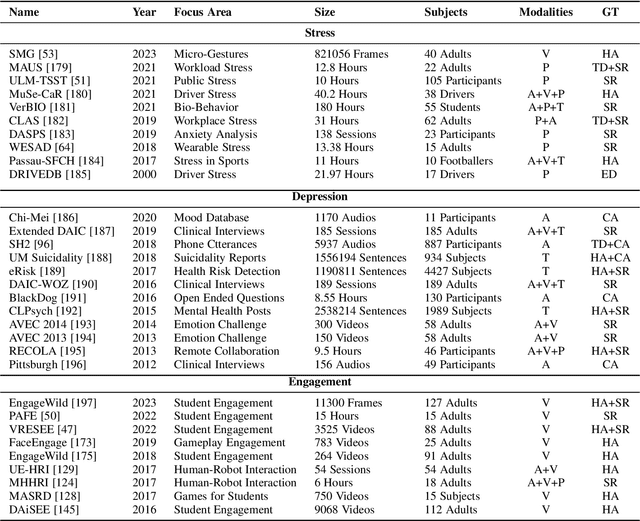Measuring Non-Typical Emotions for Mental Health: A Survey of Computational Approaches
Paper and Code
Mar 09, 2024



Analysis of non-typical emotions, such as stress, depression and engagement is less common and more complex compared to that of frequently discussed emotions like happiness, sadness, fear, and anger. The importance of these non-typical emotions has been increasingly recognized due to their implications on mental health and well-being. Stress and depression impact the engagement in daily tasks, highlighting the need to understand their interplay. This survey is the first to simultaneously explore computational methods for analyzing stress, depression, and engagement. We discuss the most commonly used datasets, input modalities, data processing techniques, and information fusion methods used for the computational analysis of stress, depression and engagement. A timeline and taxonomy of non-typical emotion analysis approaches along with their generic pipeline and categories are presented. Subsequently, we describe state-of-the-art computational approaches for non-typical emotion analysis, including a performance summary on the most commonly used datasets. Following this, we explore the applications, along with the associated challenges, limitations, and future research directions.
 Add to Chrome
Add to Chrome Add to Firefox
Add to Firefox Add to Edge
Add to Edge